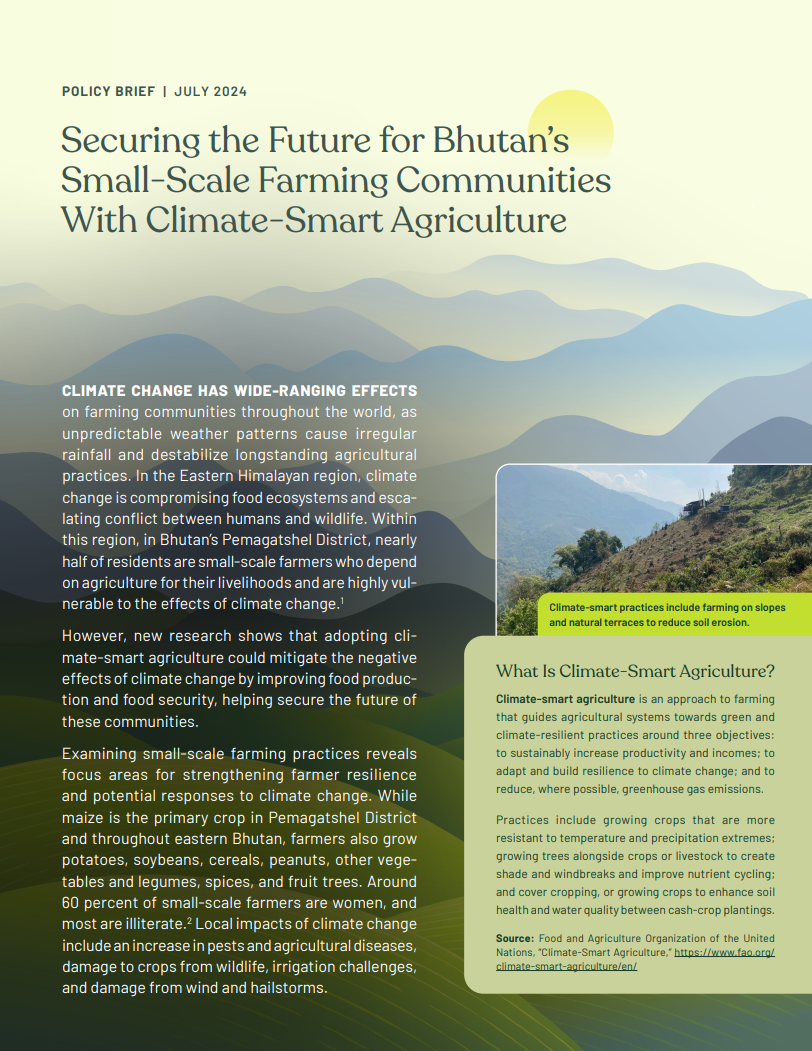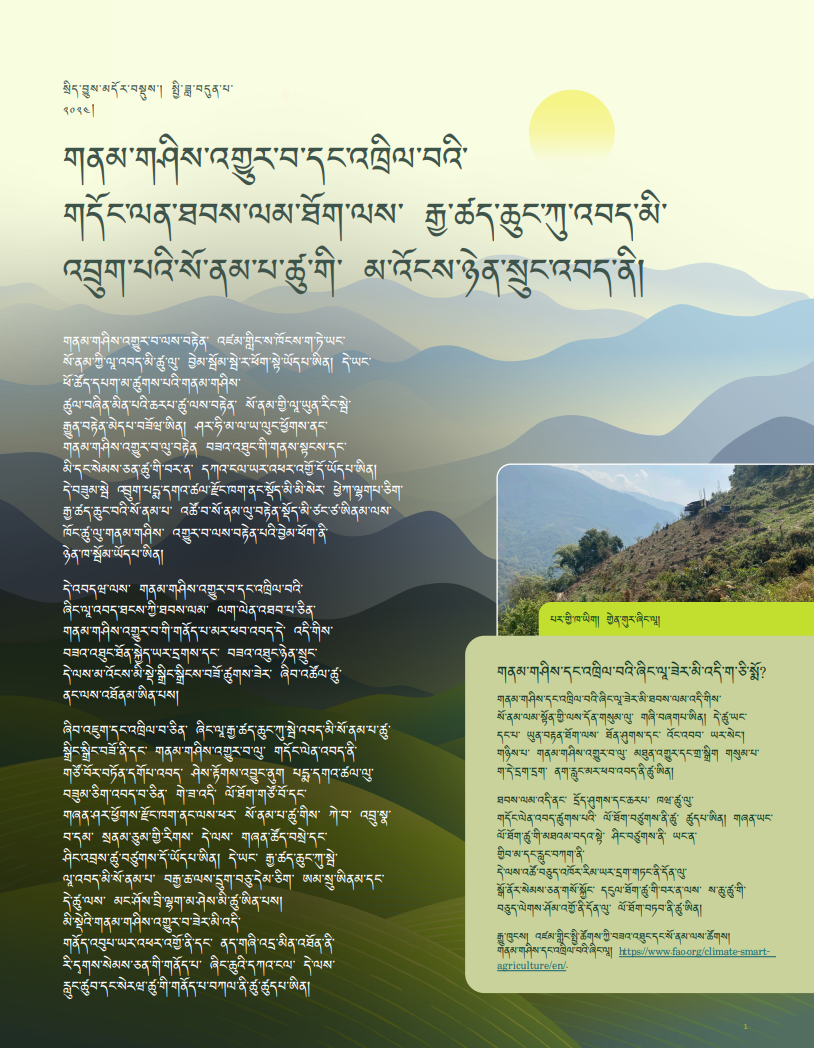
Research Technical Assistance Center
Climate change has wide-ranging effects on farming communities throughout the world, as unpredictable weather patterns cause irregular rainfall and destabilize longstanding agricultural practices. In Bhutan’s Pemagatshel District, climate change is compromising food ecosystems and escalating conflict between humans and wildlife. Nearly half of the district’s residents are small-scale farmers who depend on agriculture for their livelihoods and are highly vulnerable to the effects of climate change.
To help address these affects, new research from Royal University of Bhutan and the University of Montana examined how adopting climate-smart agriculture in small-scale farming practices can help mitigate the negative effects by improving food production and food security. This brief shares provides additional background on Pemagatshel’s farming practices and climate-smart agriculture and shares how the key research findings reveal promising opportunities. The brief concludes with three recommended actions to protect Bhutan’s small-scale farmers from climate change.
This brief is available in English and Dzongkha.


